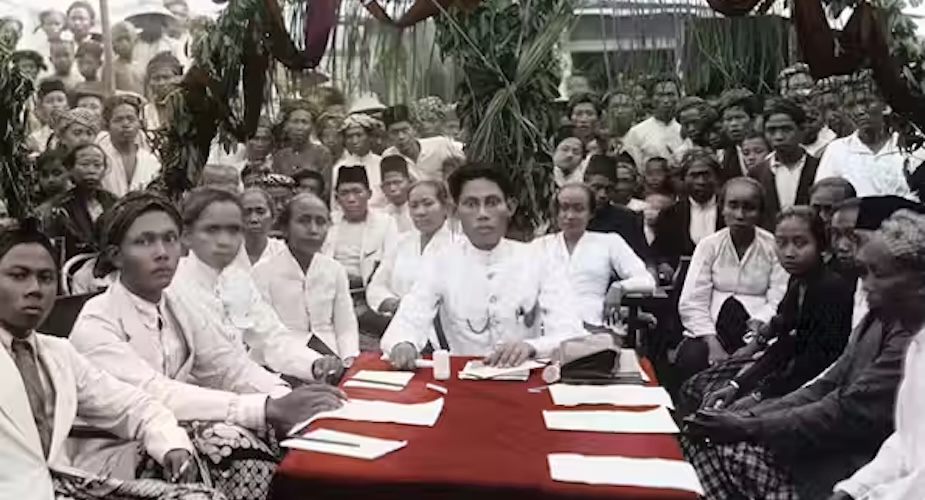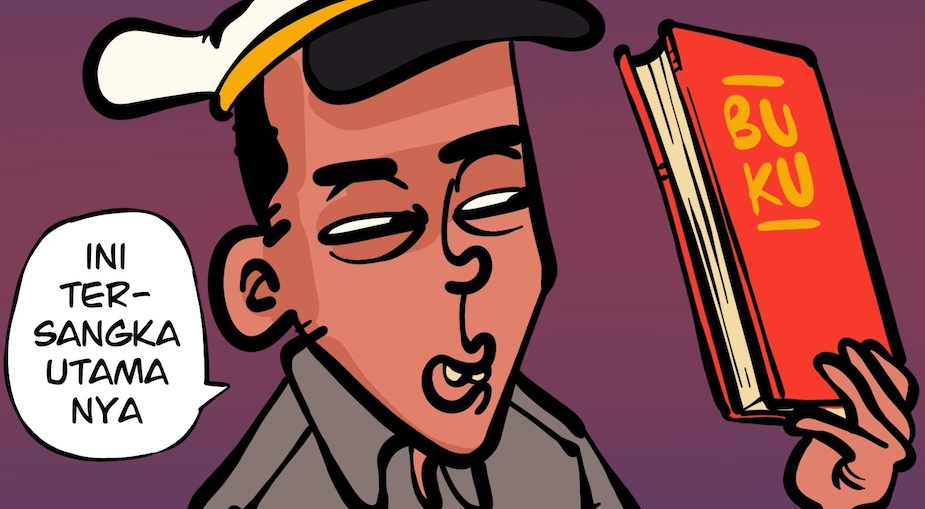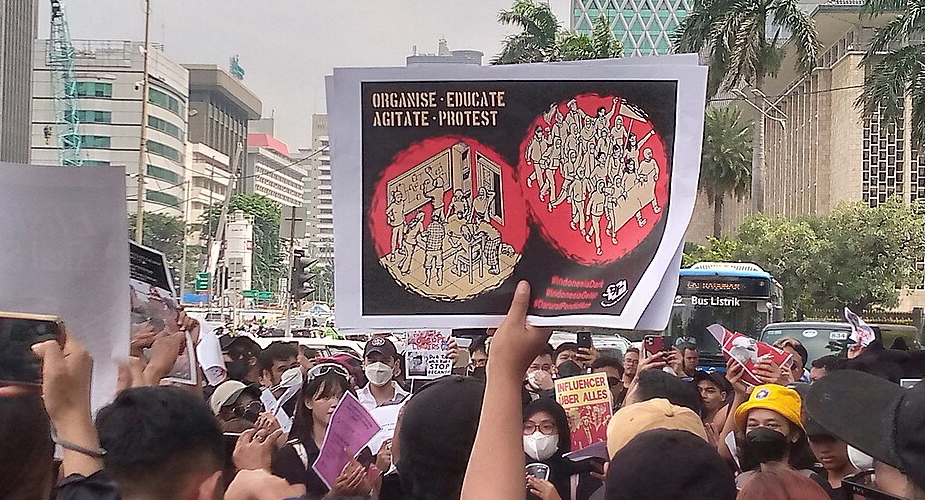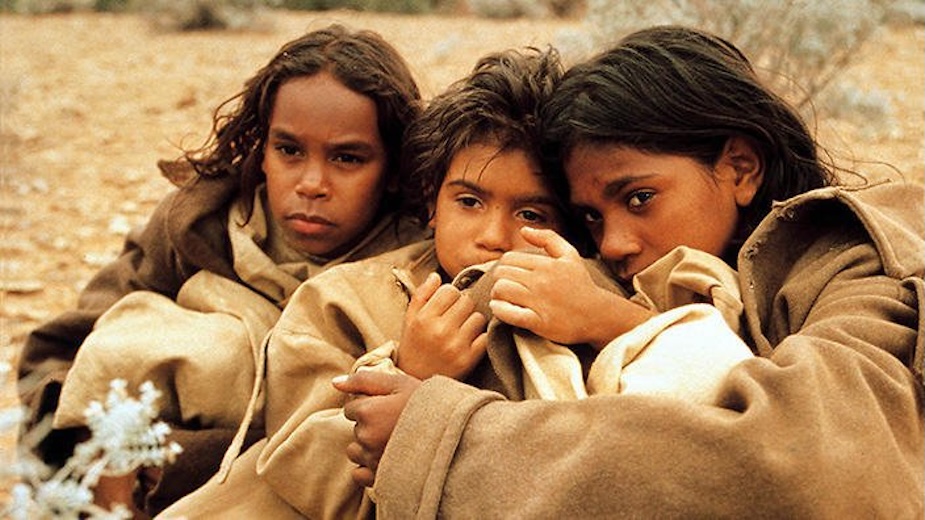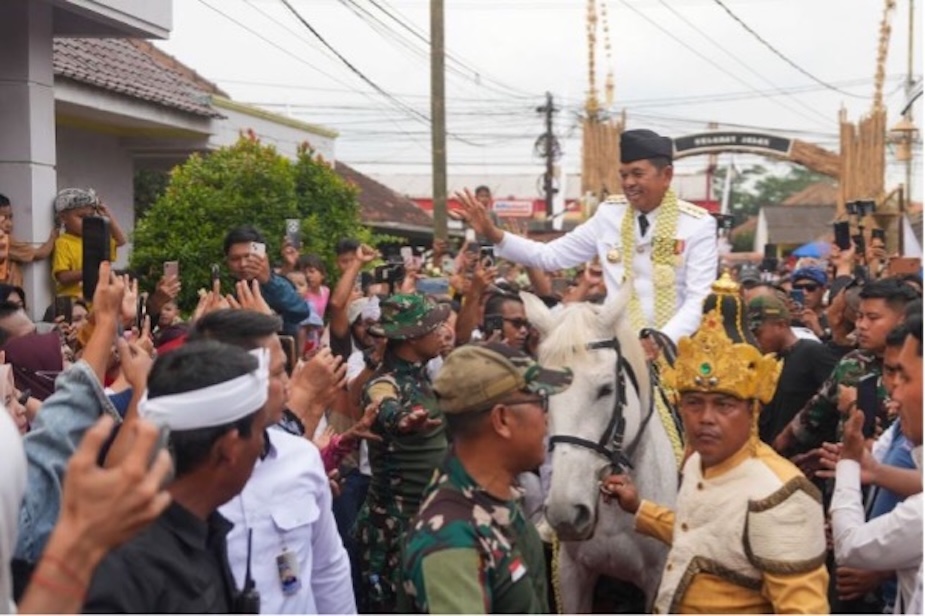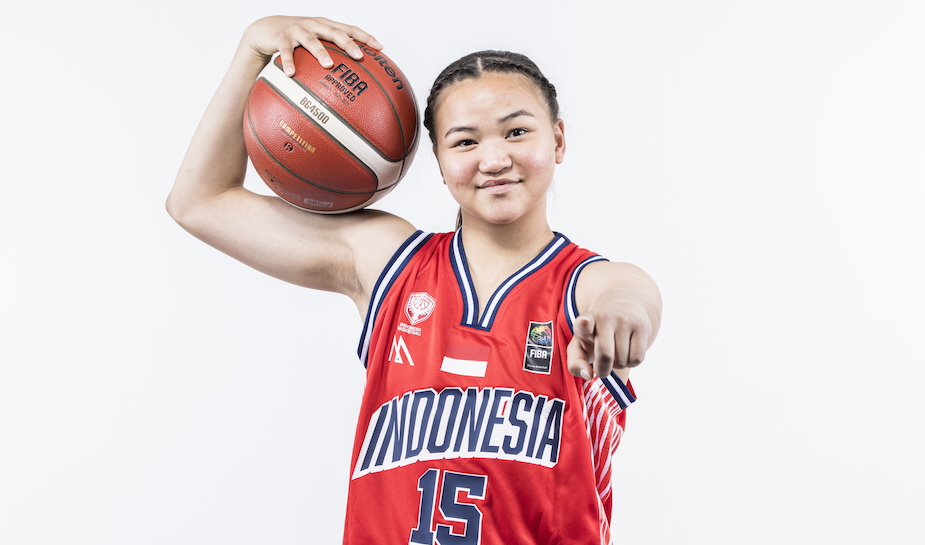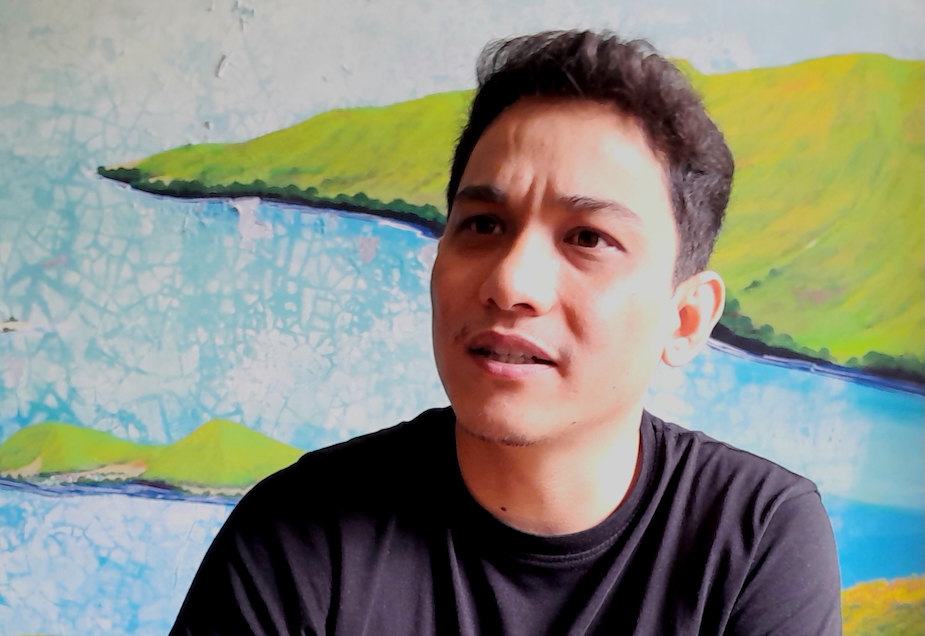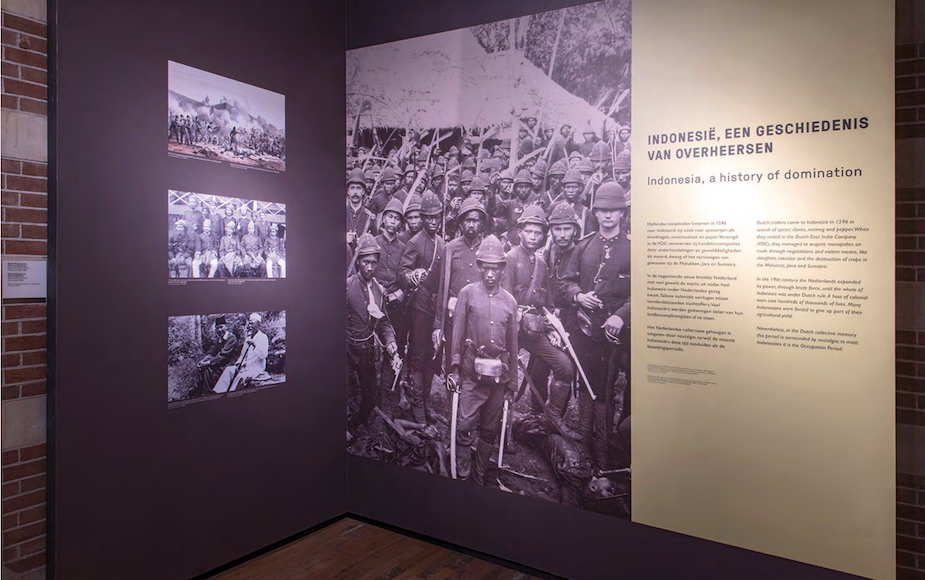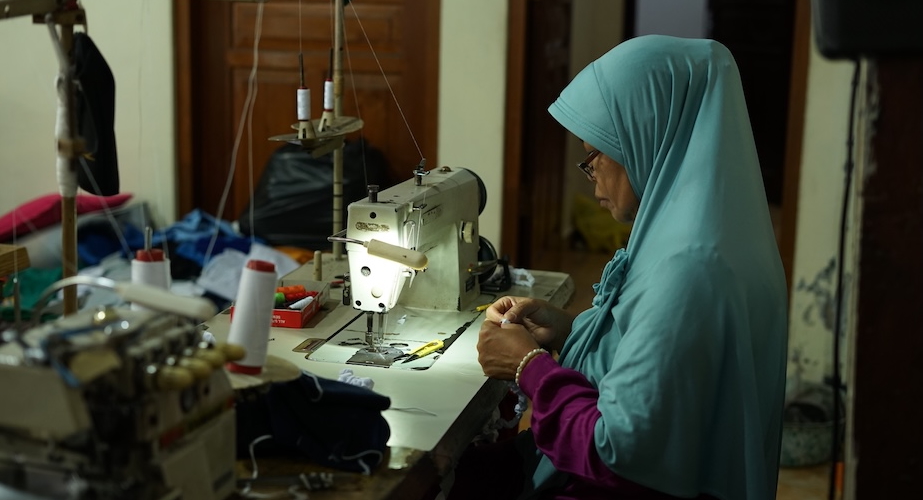KERRY BROGAN talks with two women whose husbands 'disappeared'.
Kerry Brogan
Between 1989 and 1993 the Indonesian Armed Forces mounted an intensive counter-insurgency operation against the armed independence group, Aceh Merdeka. Their methods included extrajudicial executions, 'disappearances', unacknowledged military detention, torture, and unfair political trials. The precise human rights toll of these counter-insurgency operations will never be known.
Access to the area was restricted by the authorities. The world was indifferent. A climate of fear engendered by threats of military reprisals and by extensive monitoring by the security forces existed throughout Aceh.
Despite the difficulties facing human rights monitoring, Amnesty International estimated that the operations resulted in the killing of some 2,000 civilians including children, women and the elderly by soldiers in or near Aceh since 1989. The victims were usually suspected by the military of involvement in rebel activity.
No investigationThe world largely ignored the Aceh conflict at its height. Now that it has all but subsided, Aceh has disappeared completely from global attention. The legacy of human rights violations during the counter-insurgency operation is also largely unknown.
To date, there is no information that any of the killings or 'disappearances' have been impartially and fully investigated by the authorities. The mothers and fathers, husbands, wives and children of those who were killed or 'disappeared' have never been told officially what happened, nor received any compensation. In many cases, they never received the bodies of their relatives. Not one member of the security forces is known to have been held accountable for their actions during the operation to wipe out Aceh Merdeka.
WidowsAs most of the victims of the killings and 'disappearances' were men, there is now a large number of widows - or janda-janda as they are called locally - in Aceh. The fate of these widows appears publicly to be a non-issue.
What has happened to all the women left behind to deal with Aceh's human rights tragedy? How are they surviving and how do they deal with the fact that their husbands' killers would never be brought to justice and that they would never receive compensation from the government?
In April 1995, I traveled to Indonesia as part of a delegation to research human rights violations against women in Indonesia and East Timor. I was accompanied by an Australian-based academic with expertise on women in Indonesia.
Among the issues we wanted to research was the impact of past human rights violations on the families of those killed or 'disappeared' in a climate where there was no accountability for human rights violators. By gathering material about the lives of the Acehnese widows we also wanted to draw attention again to another of the world's forgotten human rights tragedies.
It could never be thorough research. Most people in Aceh are still too scared to speak out. Our planned visit was hampered and then cut short by military surveillance of our activities. But the lives and experiences of the women we spoke to, consistent with information gathered about Aceh since 1989, reflect those of many other women throughout the province.
Tales of tortureWe drove up to the Acehnese town of Lhokseumawe with three Indonesian human rights lawyers. As we got closer to our destination, the jokes and light conversation stopped as our companions began recounting details of the human rights violations that had occurred in Aceh. They told of the threats they had received for attempting to defend Acehnese facing political charges, of the tales of torture from those in military custody who finally managed to be defended by independent lawyers, and of the recent political trials of four men and one woman.
The interviews with the widows were to be conducted at the house of another lawyer. His father had recently died and the family was holding a funeral. Despite the inconvenient timing of our visit we were welcomed into the family environment. Two widows had come to meet with us.
I am always eternally grateful towards the people who agree to describe to me what has happened to them or their family members. There are so many obstacles which would stop most of us from allowing ourselves to be subjected to painful and often apparently inane questions - the most obvious one being fear - that I have grown accustomed to many people not agreeing to be interviewed or not appearing for appointments. It is also not always easy to explain why we want to interview people, what we will do with the information and what difference - if any - it will make to the lives of the people we are prying for information.
Despite all this, Djumilah and Maya - not their real names - agreed to meet us, most probably because of the well-earned trust they have in the lawyers who accompanied us. Djumilah and Maya's husbands were both killed in 1991 after being arrested by the military in Lhokseumawe. Djumilah's husband's body was returned. Maya never saw her husband again - dead or alive. In human rights jargon, he was one of the 'disappeared'.
DjumilahDjumilah's husband was taken from the family's home by soldiers from Indonesia's Special Forces Command, Kopassus, during the Muslim fasting month of Ramadan. She could not remember the exact date. In the absence of a warrant, she asked the soldiers why her husband was being taken into custody. The soldiers told her that he would be taken for a while and would probably be brought back the following day.
He didn't return the next day. Several days later one of the Kopassus officers who conducted the arrested - who had known her husband prior to his arrest - came to her house and asked her for soap, a towel and cigarette money for her husband. Djumilah handed over the items. After eight days the officer returned again and asked for more cigarette money and food.
The next day, the guard in Djumilah's village was ordered by soldiers to leave his post. On return, he discovered Djumilah's husband's body. On hearing the news, Djumilah sent a relative to retrieve the body. There were bullet holes in the neck and blue marks all over his face from beating. There were also cigarette burns all over his arms. She never received a death certificate or an explanation of her husband's arrest or death.
MayaMaya never saw her husband again after his arrest in 1991, when eight armed Kopassus officers came for him. They too were deliberately unclear about the nature of the arrest, saying only that they were taking him for three days only. When he did not return, Maya's brother went to the local Kopassus command to ask where he was. The military denied any knowledge of his whereabouts. She herself was too frightened to go to Kopassus.
For two months Maya did not know if he was still alive or not. Then a relative told her that he had seen what he thought was Maya's husband's body on the side of a road. He couldn't be sure and Maya will never know whether it was her husband. But she has given up any hope of him being alive. Maya believes that after her husband was arrested he was taken to a local military detention center well-known for being a place where detainees were tortured and frequently killed.
FearThe two women did not only suffer the loss of their husbands, but had no way of seeking further information about their husbands' deaths or compensation from the authorities. They also had to live with the fear that members of the security forces, not familiar with their husbands' deaths, were suspicious of women without husbands. Soldiers frequently suspect that an absent husband may have fled to join Aceh Merdeka.
In 1992 the two women, along with five others whose husbands had also been killed or 'disappeared', were called to a local military office and asked about the whereabouts of their husbands. Djumilah tried to explain that her husband was dead. She was asked by one of the soldiers how she knew he had died. She explained that someone from Kopassus had brought the body back. The soldier then asked her 'Why didn't you come and pick him up before he died?'.
Maya denies that her husband was involved in Aceh Merdeka. She had been married to him for 12 years and during the worst of the counter-insurgency period she had asked him why he was not worried about being arrested on suspicion of involvement with Aceh Merdeka, as so many other men had been. He asked her why he should worry - he was not involved.
Two years after his death some soldiers approached Maya and started sexually harassing her. They asked where her husband was but she was too scared to reveal that he was dead for fear that this would leave her vulnerable to further harassment from the military.
HardshipDjumilah was 30 at the time that we met her and had three children. She described what happened to her husband without displaying much emotion. But when we asked what life was like for her now she immediately began to cry, perhaps because the day-to- day hardships are easier to grieve over than the inexplicable death of her husband.
Maya was a few years older and had six children. She complained how difficult it was for women in Lhokseumawe to get work - even though it is an area of heavy industry. The women are untrained for most of the jobs available and they lack education. Both had been the full-time carers of their children while their husbands were alive. Both now face financial hardship with low paid and insecure jobs their only option.
International supportI am still trying to understand the enormity of the human rights tragedy in Aceh by multiplying the pain and experiences of these two women with the large number of women now trying to exist after the killing of their husbands by the military. It is simplistic, but it is the only way I can bring any sense of reality to the events there. I never really succeed.
Without help from the Indonesian Government, the women in Aceh whose husbands were killed or 'disappeared' are surviving. Some local non-governmental organizations have begun rehabilitation and retraining programs with the women. International support, including from other governments, would be a very practical way of providing some form of justice for these women.
Kerry Brogan is a postgraduate student at the University of Sydney.

